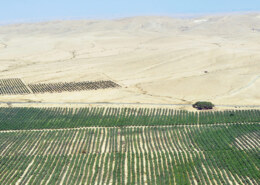What are the predicted long-term consequences of climate change if no action is taken?
Soil fertility depletion Soil fertility depletion means that the soil loses its ability to grow healthy plants. This happens because of overuse, poor farming practices, and lack of nutrients. Farmers face big problems when their soil is not fertile. Biofertilizers could help solve this problem. BiofRead more
Soil fertility depletion
Soil fertility depletion means that the soil loses its ability to grow healthy plants. This happens because of overuse, poor farming practices, and lack of nutrients. Farmers face big problems when their soil is not fertile.
Biofertilizers could help solve this problem. Biofertilizers are natural fertilizers made from living organisms, like bacteria and fungi. These tiny organisms help plants grow by giving them important nutrients like nitrogen and phosphorus. They also improve the soil’s health and make it more fertile over time.
However, biofertilizers are not the only solution. Farmers can use other methods to improve soil fertility too. One way is crop rotation, which means planting different crops in the same field each season. This helps keep the soil rich in nutrients. Another way is adding organic matter, like compost or manure, to the soil. This boosts its nutrient levels and improves its texture.
Additionally, using cover crops, such as clover or rye, can protect the soil from erosion and add more nutrients when they decompose. Proper irrigation and reducing the use of chemical fertilizers also help maintain soil health.
Biofertilizers are a great option, but using a combination of methods can be the best way to keep soil fertile.
See less



Climate change refers to the long term changes in the Earth's climate especially a change in the average weather conditions or in the distribution of weather patterns over a significant period of time (decades to millions of years) which can be caused by various factors including variations in solarRead more
Climate change refers to the long term changes in the Earth’s climate especially a change in the average weather conditions or in the distribution of weather patterns over a significant period of time (decades to millions of years) which can be caused by various factors including variations in solar radiation, volcanic eruptions and human activities, particularly the emission of greenhouse gases such as carbon dioxide, methane and water vapor.
Long term consequences of Climate change –
Climate change demands urgent collective action as its devastating impacts on ecosystems, economies and human well being intensify, emphasizing the need for sustainable practices, renewable energy and global cooperation.
See less